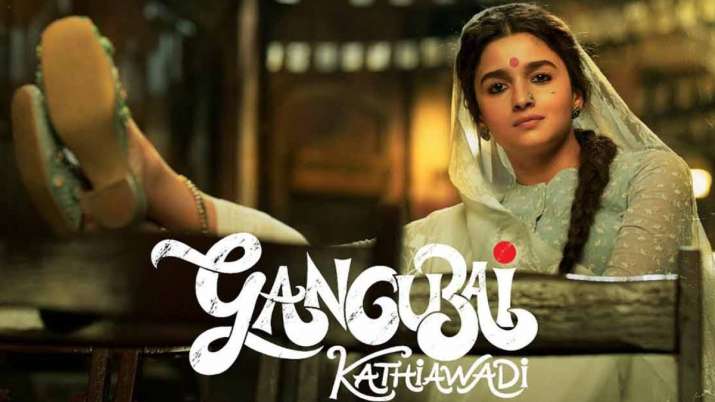Highlights
- Sanjay Leela Bhansali's film has faced several legal troubles
- The film is inspired by the book 'Mafia Queens of Mumbai' written by S. Hussain Zaidi
Bollywood movie Gangubai Kathiawadi "prima facie, is an artistic expression within the parameters of law", the Supreme Court has said while dismissing the plea seeking stay on its release. The Alia Bhatt-starrer, produced by Sanjay Leela Bhansali's 'Bhansali Production Private Ltd', released in theatres on Friday.
A bench of Justices Indira Banerjee and J K Maheswari dismissed the plea of Babuji Rawji Shah, who claims to be the adopted son of Gangubai, on whose life the film is purportedly based, against the Bombay High Court's order declining him various reliefs such as interim stay on the release of the movie.
The top court, which dismissed the petition on Thursday, said in the detailed order uploaded on Friday that there are no materials disclosed or pleadings to show, even prima facie, that the petitioner was a family member or a near relative of Gangubai.
"The contention of the petitioner is that the story of Gangubai sought to be depicted is untrue, is vague and devoid of material particulars. In any case, whether the story is true or incorrect would have to be decided by the Court upon examination of the evidence.
"The film certificate issued by the CBFC prima facie shows that the film is not defamatory. Prima facie, it appears that the movie is an artistic expression within the parameters of law," the order said.
The apex court noted that the film has already been given the requisite certificate by the Central Board of Film Certification (CBFC) under the Cinematograph Act, 1952. The top court said however that an injunction action can be initiated even after a certificate is issued under the Cinematograph Act.
"The Court may examine the film and judge whether its public display breaches the norms of decency or contravenes the law. A film which is defamatory or indecent or breaches copyright cannot be allowed to be exhibited only because a certificate has been issued.
"At the same time, it has to be kept in mind that the guidelines for certification of films, as contained in Section 5(a) read with Section 5(B) of the Cinematograph Act, 1952 though not mandatory, have been carefully formulated. They require the CBFC to be responsive to the values and standards of society and also take note of social changes," the top court said.
It said the CBFC is required to ensure that sensibilities are not offended by obscenity, vulgarity, defamation or denigration of any group of persons. "The appeal of the petitioner is pending in the high court. It is open to the petitioner to agitate all issues in the pending appeal. Any observations made in the impugned order at the interlocutory stage will not affect the decision in the appeal. The impugned order does not call for interference of this court," it said.
Senior advocates C Aryama Sundaram, Mukul Rohatgi, Siddharth Dave and Dhruv Mehta, appearing for the filmmakers, had argued that phenomenal expenses have been incurred in producing the film and the court should not restrain the release of the film at the last moment.
They submitted that the film is based on book "The Mafia Queens of Bombay" and eulogises the protagonist “Gangubai” and she has not been defamed. The lawyers had argued that the respondents cannot be denied their fundamental right of freedom of speech and expression guaranteed under Article 19(1)(a) of the Constitution.
They also contended that the petitioner could not have claimed the relief of injunction without first seeking a declaration of his status as adopted son of Gangubai and he needs to prove that he is a family member. Advocate Rakesh Singh, appearing on behalf of the petitioner, had submitted that the fundamental right to freedom of speech and expression is subject to restrictions and there is no fundamental right to defame.
Shah had earlier moved the high court seeking an order restraining the writers/publishers of the novel from creating any third-party rights or writing any other story on the life of his mother (Gangubai Kathiawadi). He had also sought a stay on release of the movie 'Gangubai Kathiawadi'.
The high court, in its order passed on July 30 last year, had rejected the application noting that any content of defamatory nature dies with that person's death.
"It is for the appellant (Shah) to demonstrate that he is the adoptive son of deceased Gangubai Kathiawadi, which he has prima facie failed to do," the high court had said, adding that in a case of claim for defamation, action can be brought by a person in Court of law provided he claimed to be defamed.
Merely because the Appellant is claiming to be son of such person cannot be prima facie inferred to have the legal right to show indulgence, the high court had said.
Prior to this, a lower court had rejected the defamation lawsuit of Shah leading to filing of an appeal in the high court which also refused to grant any interim relief to him.

